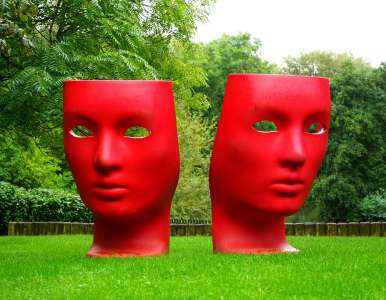When we think about Morocco’s history, we may picture the country’s vibrant culture and fascinating traditions. However, Morocco’s colonial past is just as significant and is essential for understanding the country’s contemporary society. French influence is one of the most critical factors that shaped Morocco’s colonial past, and its lasting legacy is still visible today.
Throughout the late nineteenth century, France, like many other European countries, sought to exert its power over Morocco. The French colonial administration established control over the Moroccan economy, infrastructure, and institutions. This had far-reaching impacts on Moroccan society, including effects on the country’s identity and nationalism, economy, and architecture.
Despite the end of French colonialism in Morocco, the impacts of French influence remain evident today. French language and cultural practices continue to influence Moroccan society, and French-style education remains a popular choice for many Moroccans. Exploring Morocco’s colonial past, including the legacies of French colonialism, is essential for understanding the complexities of this fascinating country.
The Historical Context of Morocco’s Colonial Past
Morocco has a long and diverse history that spans centuries. The country was influenced by various empires and dynasties, including the Phoenicians, the Romans, and the Islamic empires. However, by the nineteenth century, Morocco’s position as an independent kingdom was threatened by the growing influence of European powers. France, along with other European countries, sought to establish control over Morocco’s vast resources and markets, leading to the emergence of French influence in the country. This period marked a turning point in Morocco’s history, leading to complex and multifaceted colonial pasts that shaped the country’s culture, identity, and social norms.
The Emergence of French Influence in Morocco
The emergence of French influence in Morocco is a significant event in the country’s colonial past. It started in the late nineteenth century when European powers, including France, began to exert their influence over Morocco. France’s primary interest in Morocco was to gain control of its resources, including raw materials and markets.
Furthermore, France sought to establish a foothold in North Africa, which meant asserting dominance over Morocco. France employed various tactics to achieve this, such as economic, political, and military intervention. These interventions ultimately led to the establishment of French Protectorate over Morocco in 1912, which remained in place until Morocco gained its independence in 1956.
The emergence of French influence in Morocco had a profound impact on the country’s history, and its legacy continues to shape contemporary Moroccan society and culture. French colonialism played a crucial role in shaping Morocco’s national identity and influenced French cultural practices and norms, which are still evident today.
The Impact of French Colonialism on Moroccan Society and Culture
The impact of French colonialism on Morocco’s society and culture was enormous. The French sought to modernize the country’s infrastructure and economy, which had long-term effects on Moroccans’ way of life. They introduced new transportation systems and built roads, factories, and train stations across the country. The French also Westernized Moroccan lifestyle and dress and introduced new technologies and medical practices.
Moreover, French colonialism had profound impacts on Moroccan identity and nationalism. French colonization not only posed a threat to Morocco’s sovereignty but created a sense of inferiority to the Moroccan people. The French also enforced their language and culture in Morocco, which led to a loss of Moroccan language and cultural heritage. Today, French cultural norms and practices continue to influence Moroccan society.
- Table 1: The Impact of French Colonialism on Moroccan Society and Culture
| Impacts of French Colonialism on Moroccan Society and Culture | Description |
|---|---|
| Modernization of infrastructure and economy | The French introduced new transportation systems and built roads, factories, and train stations across the country. The French also Westernized Moroccan lifestyle and dress and introduced new technologies and medical practices. |
| Loss of Moroccan identity and nationalism | The French enforced their language and culture in Morocco, which led to a loss of Moroccan language and cultural heritage. Moroccan people developed a sense of inferiority to the French. |
| Continued French cultural influence | French cultural norms and practices continue to influence Moroccan society. |
The Legacies of French Colonialism in Contemporary Morocco
The Legacies of French Colonialism in Contemporary Morocco
French colonialism in Morocco had a profound impact on the country, and its legacies are still visible today. One of the most significant legacies of French colonialism is the French language. French is still widely spoken in Morocco, particularly in urban areas and among educated elites. French language instruction is mandatory in schools, and many Moroccans view French as an essential language for international commerce and diplomacy.
Another significant legacy of French colonialism in Morocco is the institutions they established. French-style administration and legal systems continue to shape contemporary Moroccan society. The institutional framework that the French established helped to modernize the country’s infrastructure and economy, and it continues to serve as the basis for many of the country’s political and economic institutions.
Finally, French colonialism had significant impacts on Moroccan culture and society. French cultural practices and norms continue to influence Moroccan society, particularly in urban centers. The prominence of French fashion, music, and cuisine in Morocco is a testament to France’s lasting influence on the country’s cultural identity.
The Role of Education in the French Legacy
Education played a crucial role in the French legacy in Morocco. The French established schools throughout the country, and French-style education quickly became the norm. The French aimed to modernize Morocco, and they believed that education was key to achieving this goal. French educational institutions emphasized the importance of science and technology, as well as the French language. By the end of the colonial period, the vast majority of educated Moroccans had been educated in French schools.
This educational legacy is still felt today, as many Moroccans view French education as superior to traditional Moroccan education. The French style of education has played a significant role in shaping many aspects of modern Moroccan life, including politics, economics, and culture. Moroccan students continue to learn French in school as a second language, and French remains an important language in business, diplomacy, and higher education.
The Influence of French Colonial Architecture
French colonial architecture is a testament to France’s presence in Morocco and its significant influence on the country’s architectural heritage. Many buildings in cities like Casablanca and Rabat are designed in the French colonial style, marked by their ornate wrought iron balconies, tall windows, and intricate facades. The most significant examples of French colonial architecture in Morocco can be found in the medina of Casablanca, which is home to several early 20th-century buildings designed in a unique blend of Art Deco and Moroccan styles.
French colonial architecture has undoubtedly left a lasting impact on Morocco’s architectural history. The buildings serve as a visual representation of French colonialism and its influence on Morocco’s cultural identity. Even now, decades later, these structures continue to attract tourists and architects alike who are fascinated by their design and history.
Frequently Asked Questions
Here are some frequently asked questions about Morocco’s colonial past and French influence:
-
The main goal of French colonialism in Morocco was to gain control of the country’s resources, including raw materials and markets, and to establish a foothold in North Africa.
-
French colonialism had significant impacts on Moroccan society and culture. French efforts to modernize the country’s infrastructure and economy had long-term effects on Moroccans’ way of life. Additionally, French colonialism had profound impacts on Moroccan identity and nationalism, which are still felt today.
-
Several legacies of French colonialism continue to shape contemporary Morocco. The language, institutions, and cultural norms established under French colonialism have all had a lasting impact on the country. French remains an essential language in Morocco, and French cultural practices and norms continue to influence Moroccan society.
What was the main goal of French colonialism in Morocco?
The French colonialism of Morocco had a primary goal: to control the country’s valuable resources, including raw materials and markets. France sought to establish a foothold in North Africa and compete against other European powers, such as Spain and Britain, who were also eyeing Morocco’s resources at the time. The French conquest and colonization of Morocco were marked by violent conflicts, including the Battle of Isly and the Zaian War, which further reinforced their domination over the country. Through their colonization, France was able to exploit Morocco’s resources to fuel its industrial growth, while Morocco was forced to give up their resources to their overseas masters. The main goal of French colonialism in Morocco was to benefit the colonizer and not the colonized.
What were the long-term effects of French colonialism on Moroccan society and culture?
French colonialism had a significant impact on Moroccan society and culture that can still be felt today. The French implemented policies aimed at modernizing the country’s infrastructure and economy, including building roads and railways, improving public health, and introducing new agricultural techniques. While these developments improved Moroccans’ standard of living and reduced poverty, they also altered traditional ways of life.
Moreover, French colonialism had profound impacts on Moroccan identity and nationalism, which continue to shape contemporary Morocco. The French imposed their cultural norms, language, and legal system on the country, which remain influential to this day. For instance, French remains an essential language in Morocco, and French educational institutions and cultural practices continue to have a significant presence. This influence has also impacted Moroccans’ sense of identity and national unity.
- The French introduced a centralized bureaucracy that undermined traditional forms of governance and authority, leading to increased centralization and the creation of a more homogenous, “Moroccan” identity.
- The emphasis placed on education by the French continues to shape Moroccan attitudes towards learning and the role of education in society. While French-style education is widely seen as superior to traditional Moroccan education, it is also viewed as a tool for cultural imperialism and a threat to Moroccan identity.
What are some visible legacies of French colonialism in Morocco?
French colonialism in Morocco created several visible legacies that continue to shape contemporary Moroccan society and its culture. One of the most notable legacies is the language. French remains an essential language in Morocco, and many Moroccans are fluent in French as a result of the country’s colonial past. French is still widely spoken in Moroccan schools, businesses, and government institutions.
Institutions established under French colonialism also had a lasting impact on Morocco. French-style education became the norm, and French schools were established throughout the country. Today, many Moroccans still view French education as superior to traditional Moroccan education.
French colonialism also had a significant impact on Moroccan culture. French cultural practices and norms continue to influence Moroccan society, particularly in the areas of fashion, art, and cuisine. French colonial architecture is also a visible legacy of French colonialism in Morocco. Many buildings throughout the country are designed in the French colonial style, serving as a reminder of France’s presence in Morocco.
Overall, the legacies of French colonialism in Morocco are complex and multifaceted. They continue to shape contemporary Moroccan society and culture, highlighting the importance of understanding Morocco’s colonial past in comprehending its present.
Conclusion
After exploring the various aspects of Morocco’s colonial past, it is clear that understanding the legacies of French colonialism is crucial. French influence left a significant impact on Moroccan society and culture, which is still visible today.
From language and education to architecture and cultural norms, the French legacy is undeniable. However, it is essential to acknowledge the complex and multifaceted nature of Morocco’s colonial past. Examining this history requires careful consideration and examination, which can provide valuable insights into contemporary Moroccan society and culture.
In conclusion, by unraveling the complexities of Morocco’s colonial past and recognizing the influence of French colonialism, we can better understand modern-day Morocco. Acknowledging the legacies of colonialism is crucial to comprehending the country’s cultural and societal landscape and moving towards a more inclusive and equitable future.






